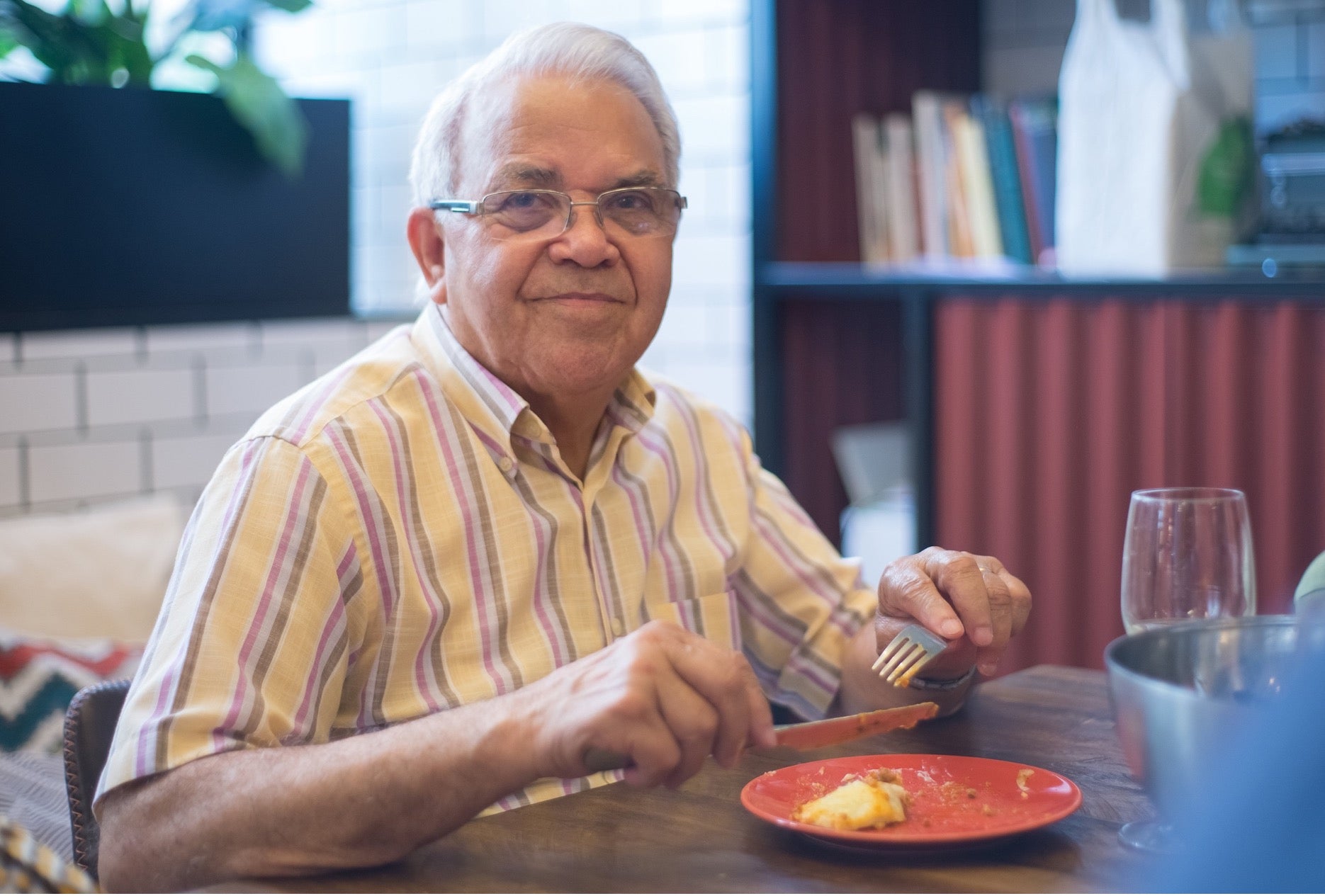Have you lost your appetite with age?
You are far from the only one.
Many elderly people find it difficult to eat enough for the body to have what it needs.
This is because appetite decreases with age.
In fact, appetite changes throughout life, and here we try to answer the question:
Why do you lose your appetite as you get older?
It deals with, among other things, about hormones.
Your hormonal balance has a big influence on your hunger.
So does sleep, physical activity and even emotions. But the hormones really play a role.
With age, a changed balance occurs in the appetite-regulating hormones and the hormones that control the feeling of fullness. This is often referred to in the literature as "anorexia of aging".
The body's insulin levels also rise as a result of reduced muscle mass. The high circulating insulin levels also contribute to the feeling of satiety (Hessov, I. & Jeppesen, PB, 2011).
The stomach loses elasticity
In addition to the hormonal changes, the tissue in the stomach also loses some of its elasticity. For some, this means that they feel full more quickly, simply because the stomach can no longer expand when food enters it.
Therefore, they will automatically eat less than before, and thus just as quietly lose weight (Hessov, I. & Jeppesen, PB, 2012).
Medicines affect appetite
As people age, the need for medication also increases for many people.
Now the wear and tear of a long life begins to be felt and felt on the body, and it is far from abnormal to have to take various forms of medicine in order to thrive as best as possible.
Medicines have a big impact on your appetite. Some medicines cause the sense of taste to change, other medicines change saliva production and so medicines can have an impact on your appetite in many different ways.
In addition, there are several preparations that must not be taken with food, e.g. Levodopa medicine, which must not be taken with proteins. This means that getting medication and food intake up can be a puzzle and require planning and energy.

It is therefore important that the elderly get enough nutrition
But lack of appetite often leads to unintentional weight loss. The weight loss leads to poor wound healing, loss of muscle tissue, greater risk of pressure ulcers, frequent infections, poor general condition and reduced quality of life. The result in many cases is reduced functional ability, more falls and longer hospitalizations (Food and Nutrition Association & Arla, 2014).
The body needs the nutrients to maintain the processes that keep you healthy, so even if your appetite is not great, it is important that you get the nutrition your body needs.
How can Adozan help you?
When you are a small eater, it is important that the bit you consume provides as much nutrition as possible, but is also delicious. That is why Adozan has developed taste-neutral powders that can be added to the food you already eat, because the food is only nutritious if it is actually eaten.
That's why we've made it so easy to use Adozan.
Sources:
Arla, 2014. Malnutrition. Diet & Nutrition Association
Hessov, I. & Jeppesen, PB, 2012, Clinical Nutrition



